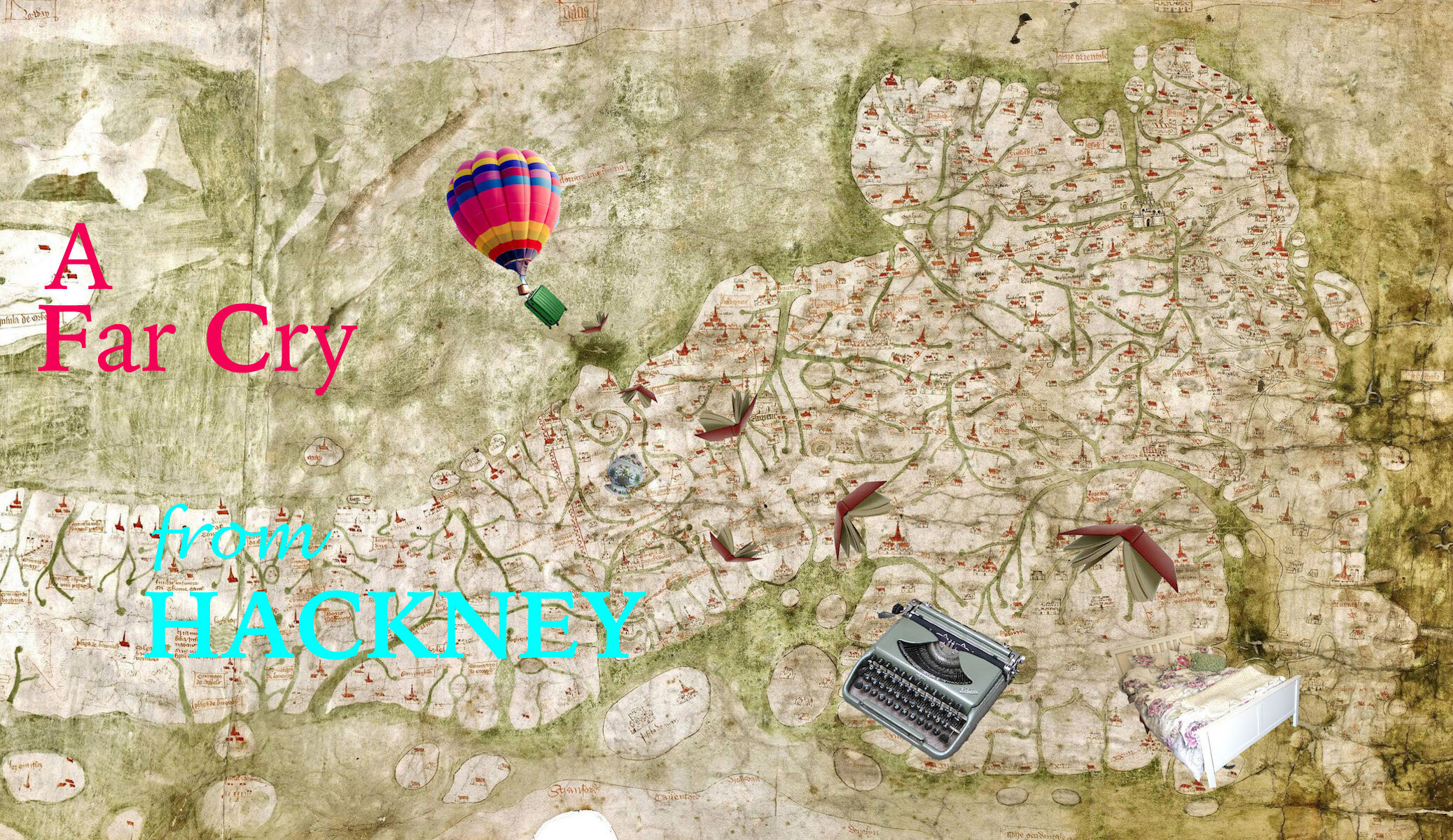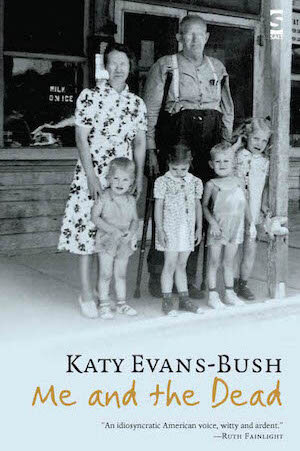BOOKS & OTHER PIECES
“Splendidly various”
TIMES LITERARY SUPPLEMENT
Click picture to go to site
“These are poems of such determination and energy, they manage not only to look into what’s broken or breaking in our civilisation but to coerce from the charged particles of language a subtext of awareness and empathy that is immensely encouraging. Katy Evans Bush has put her intelligence and wit to work without compromise.”
—Rachael Boast
“Instead of tricks and secrets, sweep and originality makes Broken Cities stand out. Katy Evans-Bush's joy, inventiveness and pleasure in the music of language really engages.”
—Ian Duhig
“On every page there is the strongest sense of being in the thick of the human crowd.”
—Annie Freud
“Katy Evans-Bush combines the intellectual rigour of the literary critic with the dynamism of a seasoned traveller in the blogosphere. These essays place poetry at the heart of contemporary culture, meeting at the borders it shares with music, politics and sculpture. She writes about art and life in a way that is generous, witty and incisive.
“It’s a thrill to read these essays from our foremost blogger. It’s testament to her talent and a validation of blogging in general. Flicking through these essays on Negative Capability, Dylan Thomas, plagiarism and poetic metre, Katy’s significant contribution to British and international poetry becomes clear.”
—John Field
“Egg Printing Explained is a dance of language: dramatic, comic and exuberant. What is especially dazzling is the cavalcade of forms and registers. The poems shift in mood and music from plain song to baroque, from blues to opera, and no reader will ever forget the exhilarating and brilliantly sustained ‘The Love Ditty of an ‘eartsick Pirate’. This is a sharply-written book from one of our sharpest wits. But it is also one of the most generous and melodic books of contemporary poetry I’ve read in some time.”
—David Morley
“This intimate voice, in this accomplished collection, points to an unbridled versatility… These are carefully managed poems, never experimental in any formal sense, yet the poet is evidently nourished by a ludic spirit which allows for a collision of registers, a promiscuity of styles, and boundless performative verve.”
—Julian Stannard
“For Henry, having two countries meant staged risk, and privacy. For Oscar, having the world meant everything bet on the one toss. In a 20's Modernist trope, this sequence hints at big unanalysed scandals by almost making them cockney rhyming slang: Evans-Bush shows us Two Great Late Victorians through the prism of the 1920s, even while she looks back 90 years at the Modernists, in a double manoeuvre.
”In literary judgment we think about sex, but in our own lives we think about love. An equal attention to Henry James and Oscar Wilde at once can illuminate both. Henry remains, at this stage, Evans-Bush's object of quiet love: touchstone to a vision of love that is the secret, and the secret joy of these poems.”
—Ira Lightman
“The most exciting news in contemporary poetry is not English or American but a mid-Atlantic, old-and-new-world marriage of the two, renewing the verbal contract. In her saucy, brilliant debut, Katy Evans-Bush proves one of the brightest offspring of this marriage. “I lashed myself to the texts of love,” she writes, “as if they were a raft.” When she reminds us, “Nothing is more dangerous than a weak imagination,” it reverberates with earned authority. She deserves to be read everywhere.”
—David Mason
“Katy Evans-Bush can tell an offbeat story the way you’ve never heard it before, but wanted to. Her ironised yet romantic fatalism is a model of wit and restrained emotion.”
—John Stammers
“Whilst anthologies often play up their diversity, the pleasure of 'the like of it' lies in the fact that these writers seem to be in conversation with each other, all working towards a mutual idea about what literature should be. They share sensuousness, a subtlety of line, an intelligent sense of humour and a seriousness about their art, born out of the knowledge that: ‘Nothing's real until you say it, and even then - / knowing how to do things with words can be terrible.' Inventive, well-read and wise, these Songs of Experience are a real treat for those who like their poetry grown-up.”
— Clare Pollard
ESSAYS & ARTICLES
Seeing The Favourite: an everyday story of chips and c***s
The atmosphere in the ladies’ room was electric. No one was saying much — just stunned women, ordinary, several in their 60s, all with an air of inner peace and joy around them. Queueing, I think we were all together and not wanting to break the bubble. Then another woman burst through the door, looked around and then straight at me and said with a huge smile: ‘WHAT A FILM!’
When Fanny Met Sian
This is a story about friendship, that excitement of discovering kindred in the wild, when one meets a sympathetic equal. And an equal as an artist! It’s like a romance. But unlike the ‘bromance’ model, when it’s two female artists this friendship of intellects must founder on the rocks. A woman without private wealth must ‘live on the thin soup of opinion’ — whether she’s the slave who speaks whatever language others require, or daughter of Dr Burney and pet of Sam Johnson.
Donald Trump’s Plastic Versailles
The world had 18 months to get used to Donald Trump, before the shock of the election result; it turns out what we weren’t ready for was his apartment. Just days after winning, the president-elect and his would-be British middleman, Nigel Farage, stood beaming together in Trump’s private elevator – a lift so gold, so garish, so glaring, that it could have come with an epilepsy warning. The internet shielded its eyes and began to get the picture...
The Unimaginable
Tax deadline. But instead, last night when I should have been going through my bank statements I found myself sitting in front of the unexpurgated footage from the Russian Army of the liberation of Auschwitz. The culmination of several day of reading and conversations, about this and other things.
The Tawdry Halo of an Idle Martyr: reading Louis Macneice's Autumn Journal
What would MacNeice have made of our own current readiness to curtail our civic freedoms for the perceived greater good? Or the way in which language itself is being used as a weapon in the War on Terror? Ultimately each of us has a conscience, and it is how we use it—precisely, our right to be private citizens in our new global context—which is under discussion now.
The Many Truths of Michael Donaghy
Michael spread by talk and example a feeling for poetry as a vital dialogue with the world around us, with other poets, with the canon, with form. .. He used to say that every poem written changes the canon in some slight way, just a miniscule shift of its balance-that in writing a poem you have a duty to consider the ones that came before it. This makes sense; the reader has some of those other poems in his or her mind, after all; but it was also about keeping faith. In terms of his own work, this translates into a feeling that working within a form creates a “serendipity” via which the poem happens “by negotiation with a resistant medium.”
TS Eliot prize row: is winner too young, beautiful - and Chinese?
Poet Sarah Howe’s 2016 TS Eliot prize win has been questioned by a sexist and sceptical literary press, but as the activity around the #derangedpoetess hashtag shows, we poets have had enough.
An animated dispute in Egypt
On Saturday a cartoonist will find himself in court in Cairo, facing a possible two-year prison sentence for writing a graphic novel. It's not just any graphic novel – it happens to be the first graphic novel in Arabic.
POEMS
Three in Blackbox Manifold
Three poems in my series ‘From Lines by Kenneth Patchen: #1, #15, #15
There, at the entrance to the other world,
every prospect looked tired.
He wanted to throw something
so he picked up a baseball.
It looked tired. The world, it said,
is too old. Too old for a home
run, it said, and added
you can’t run home…
Two Days before the Fall of Kabul (in The Honest Ulsterman)
On the examining table,
woman leaning into my back
as the hard end of her scanner
presses into my breastbone.
Looking for the sort of evidence
the body gives up to scrutiny.
Is the heart up to the forces
ranged against it. Or not…
Oft Have I Travelled
Evening light hits the garden like a paint bomb,
drenches the rusty gooseberry patch and the loganberries,
drowns the tumbledown flowers and the compost heap
with its surround of corroded metal grates
glowing orange — explodes, and throws its shrapnel
straight at my eyes. ..
The Love Ditty of an ’eartsick Pirate
It’s time we be goin’, me hearty, avast!
When the night’s nailed up its colours to its mast
Like some swab loaded to the gun’les ’n’ lashed to the plank;
Arr, make our way by th’ ghosty ports o’ call,
The bloody Triangle,
Quietin’ the parrots, kippin’ in dens of iniquity,
Where the scraps o’ the earth mixes with the scrapin’s o’ the sea:
Down alleys where ye argues if ye durst:
The forebodin’ of th’ accursed…
Extended Magic Cat Metaphor
Once you disassemble it
it’s all fucked up.
Turns out just
despair held it together.
Blinky the magic cat
laid sweets —
paper-wrapped,
coloured or plain,
familiar or unknown
like eggs for years,
then one day
Blinky broke:
Do the Culture Clash
You can zap but you can’t count on zip
if the charge won’t fly and the genetic
(wings have evolved) possibility (and de-
evolved more than) remains (40 times)
many times
vestigial in the dystopia.
There’s cute, there’s more cute,
and there’s electrocute
in our dystopia…
The Bog of Despair
We’d lunched on Greek salad and coffee
In a place with white walls and a skylight,
And when the guy in the corner’s phone
Went off in a polyphonic can-can
We laughed without even trying to hide it…
Three poems on Peony Moon
from ‘Hammershøi’:
ii.
Interior, With Coffeepot
The other chair is pushed away
as if the artist had been sitting on it;
a coffee pot hovers on the table.
There is a woman there, and one cup.
‘Not only is the artist,’ he says, ‘a child.’
‘He is an only child.’ His wife sits by herself.
He sits by himself. They are joined together
by the two ends of the brush.
BLOGS
A Room of Someone Else’s (incorporating A Far Cry from Hackney’)
Baroque in Hackney
N.b., this is the original Wordpress.com site; the tech team is working on restoring the content from 2012 onward.

JOHN FIELD WRITES
“Katy’s blog, Baroque in Hackney, was and still is a one-off.
“When Poor Rude Lines started, all I could find online was self-published poetry. Discovering Baroque in Hackney was a shot in the arm. Katy is disarmingly well read, humane and infectiously engaging.
“…Katy’s significant contribution to British and international poetry [is] clear. You could set your watch by those tedious little posts asking whether poetry is dead. Meanwhile, with characteristic chutzpah, Baroque in Hackney has just been getting on with the business of creating the sort of online space and conversation that poetry lacked but needed. Erudite – yes. Academic – no (well, not in that way). Baroque in Hackney is for us, for general readers, and surely continues to bring new audiences to contemporary poetry.”







